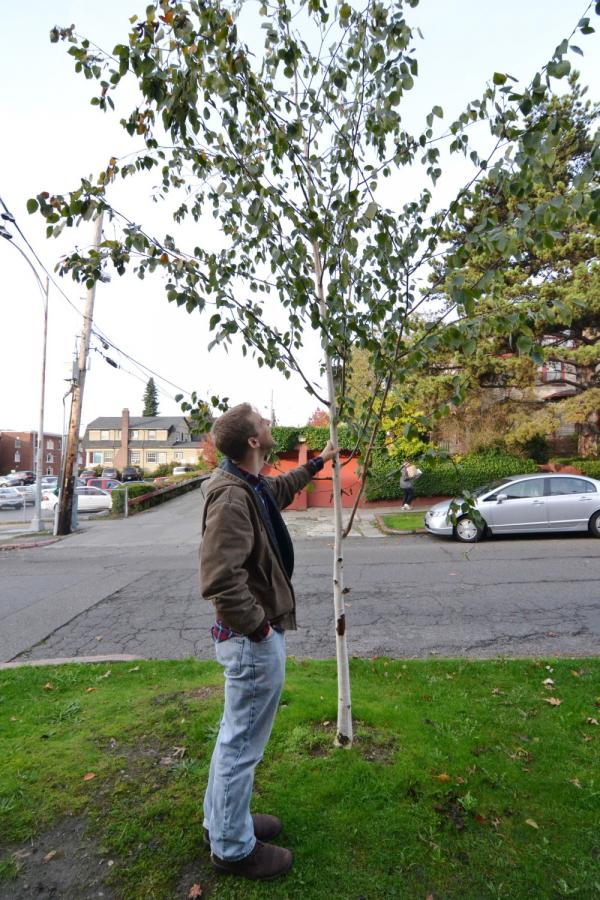
I learned of the CSF when it was first just a grassroots campaign and was lucky enough to contribute to the effort in the Winter of 2010. Coming out of that experience I was really feeling energized, excited, and empowered so I was eager to put together a project to harnass all that leftover enthusiasm (wow that was a lot of ‘e’ words..) Anyways, the initial challenge for me was to figure out what kind of project I feasibly could run. I was a sophomore, working for Husky Neighborhoods as a volunteer community organizer. I decided to organize a tree planting because it has a tangible impact, is hard work but is fun, it could bring together everyone in the community I worked in and I thought it sounded relatively simple. The lesson for me in this project and the bicycle repair station project is that your project will exponentially more complex than you think it will be from the outset. I had to permit with the city, with the UW, meet with arborists, get residential approval, call utility companies, make my case to the CSF, recruit volunteers, shop for trees etc etc etc.
But that complexity yields exponential more reward. I was so tired at the end of the days after both the tree planting and the bicycle repair station install but I felt content. I can visit those trees today and they have all grown, I can walk by the bike repair stations and see people using them. It reminds me of a saying, ‘out of little things big things grow’. It is literally and figuratively true in this case. From a small idea, came a small campaign, came a large campaign, that led to the planting of small trees, which will one day become big trees. I have also received really valuable life skills from this: persistence, organization, project management etc. and I can talk about these things on my resume. They have also helped me grow as a person. It has helped me to reflect about how I want to live in the world, and how rewarding it is to feel like an actor rather than a bystander.
Anyways, enough idealist ramblings... the practical lessons I learned is to build in flexibility into your project. The first step in your project planning should be to map your project out in a linear progression: First I will do X, then Y, then Z, etc. But build in a plan B in as many stages as possible –“if I cannot get X, I will adjust my project to account for this by..” This should allow you to prepare for the unexpected and also identify what factors your project hinges on so you can focus on those. Also, bring other people into your project, enough people so that you have support but not so many that it becomes extra work for you to try to organize these people.